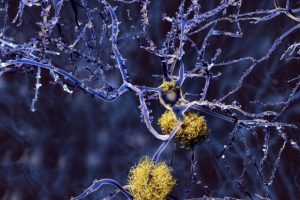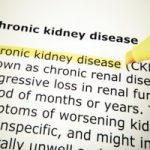 This roundup presents the latest in health news covering Alzheimer’s, heart failure, chronic kidney disease, cardiovascular disease, adrenal fatigue, and chronic fatigue syndrome.
This roundup presents the latest in health news covering Alzheimer’s, heart failure, chronic kidney disease, cardiovascular disease, adrenal fatigue, and chronic fatigue syndrome.
This week, we discussed the link between amyloid proteins that trigger Alzheimer’s disease and an increased risk of heart failure, symptoms of stage 3 of chronic kidney disease, the reduction of the heart disease and diabetes risk through the Paleo diet, and the causes, symptoms, and treatment for adrenal fatigue and CFS.
Amyloids triggering Alzheimer’s disease can also raise heart failure risk
Advertisement
Amyloids triggering Alzheimer’s disease can also raise the risk of heart failure risk. Amyloid plaques are indicative of Alzheimer’s disease, but similar deposits can also appear on the heart, too.
Senior researcher Dr. Federica del Monte explained, “We found that some forms of heart failure are basically an Alzheimer’s disease in the heart. They basically have the same biological defect. In one case, it affects the brain. In one case, it affects the heart.”
The study included 22 people with Alzheimer’s disease who were compared to 35 healthy controls. Continue reading…
 Stage 3 chronic kidney disease: Symptoms, diet, and treatment
Stage 3 chronic kidney disease: Symptoms, diet, and treatment
In chronic kidney disease (CKD), kidney function doesn’t fail at once. The condition, in fact, progresses over time and through stages. The success of the treatment often depends on which stage chronic kidney disease is diagnosed at. For best outcomes and prevention of complications, the condition should be detected as early as possible.
Chronic kidney disease comes in five stages. To measure kidney function, glomerular filtration rate (GFR) is used. GFR number is calculated based on age, race, sex, and serum creatinine. A blood test is used to determine serum creatinine levels. Creatinine is a waste product of muscle activity. When the kidneys aren’t functioning properly, creatinine levels are higher as waste cannot be effectively removed. Continue reading…
 Cardiovascular disease, diabetes risk reduced with the Paleo diet in obese postmenopausal women
Cardiovascular disease, diabetes risk reduced with the Paleo diet in obese postmenopausal women
Cardiovascular disease and diabetes risk is reduced with the Paleo diet in obese postmenopausal women. Lead author Caroline Blomquist explained, “Eating a Paleolithic-type diet without calorie restriction significantly improved the fatty acid profile associated with insulin sensitivity, and it reduced abdominal adiposity and body weight in obese postmenopausal women. A Paleolithic-type diet, high in polyunsaturated fatty acids, may have long-term beneficial effects on obesity-related disorders, including reduced risk for diabetes and cardiovascular disease.”
The researchers conducted a 24-month intervention on 70 obese postmenopausal women. The participants were divided into two groups: paleo diet group or control group. The Paleo diet is based on lean proteins, fruits and vegetables, nuts, and healthy fats and oils. The diet does not include dairy, cereal, refined fats, or sugar. Continue reading…
 Adrenal fatigue: Causes, symptoms, treatment, and diet
Adrenal fatigue: Causes, symptoms, treatment, and diet
Adrenal fatigue is a common syndrome in America, but a lot of people may not even realize they are suffering from it, so here we answer the question: What is adrenal fatigue and how can we deal with it?
Adrenal fatigue happens when the adrenal glands function below a certain level. Just what is adrenal fatigue? Your adrenal glands make hormones, including cortisol. Cortisol is responsible for helping the body deal with stress. The popular theory is that if your life is way too stressful, your adrenal glands may not pump out enough of the hormone, leading to a range of symptoms. People who suffer from adrenal fatigue may not experience a lot of obvious signs of the syndrome, but they all live with a tiredness and a general feeling of being unwell. Continue reading…
 Overcoming chronic fatigue syndrome: Steps to follow
Overcoming chronic fatigue syndrome: Steps to follow
Advertisement
Chronic fatigue syndrome (CFS) is a condition in which the individual constantly feels too tired to perform any activity – even activities they enjoy. Worse yet, no amount of sleep or coffee can shake off this constant feeling of being tired.
Chronic fatigue syndrome affects roughly 836,000 Americans, and a shocking 84 to 91 percent of them are not even diagnosed. Researchers aren’t certain what causes chronic fatigue syndrome, but they do have many theories about potential causes.
For one, Epstein-Barr virus or herpes virus-4 have been theorized to be a potential cause for chronic fatigue syndrome. Inflammation of the nervous system has also been suspected to cause chronic fatigue syndrome. Continue reading…
